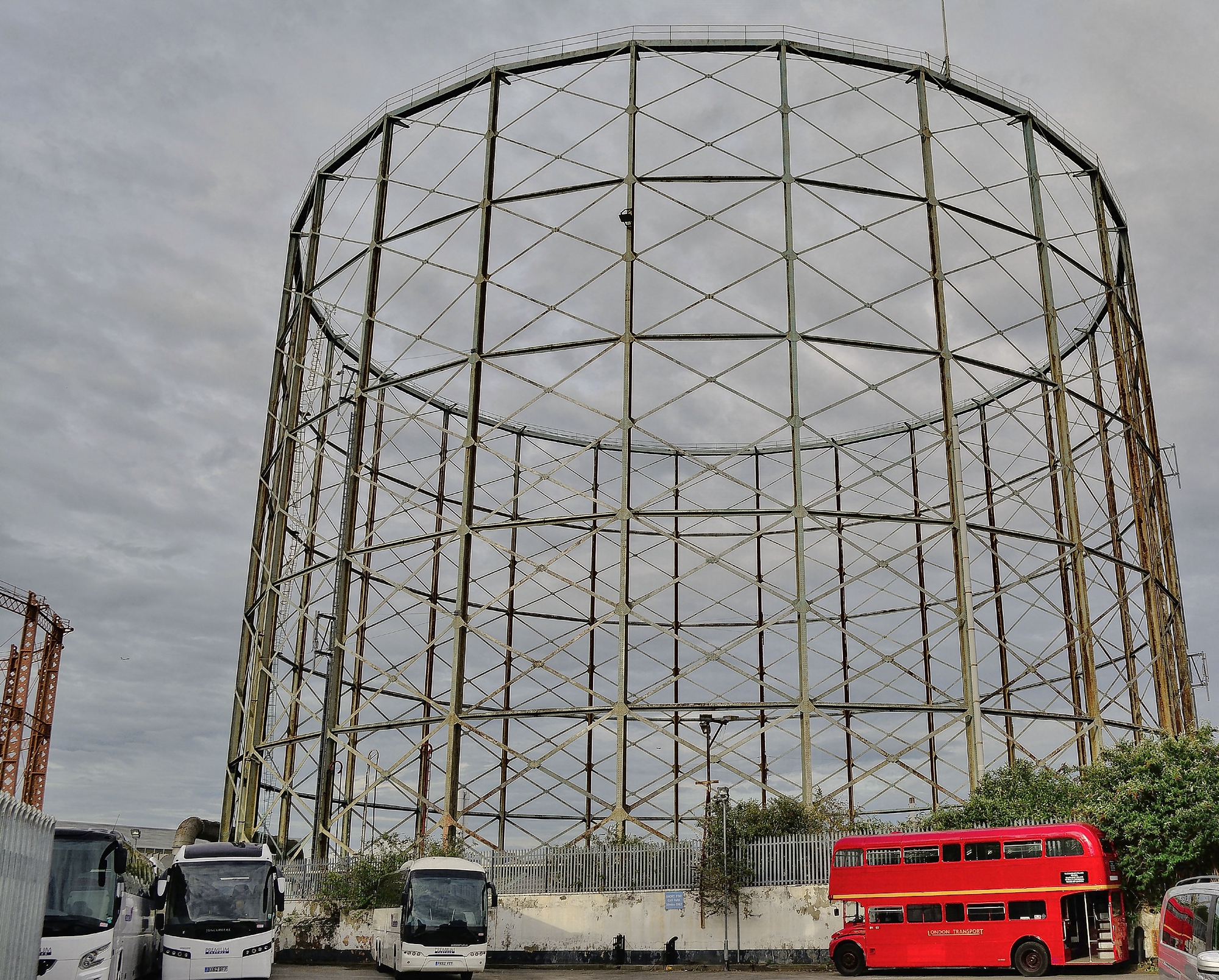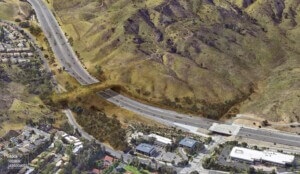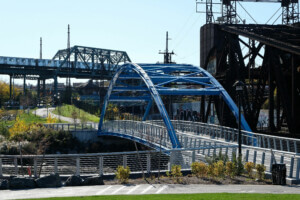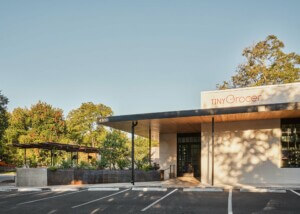An unorthodox—and decidedly Floridian in flavor—central feature under very early consideration for Ruby Triangle, a mixed-use redevelopment scheme planned for South East London, has been nixed by developer Avanton following opposition from local residents, council members, and wildlife activists.
The feature in question, a large enclosed alligator park, would have breathed bizarre new life into Gasholder No. 13, one of London’s largest surviving Victorian gasholders at the site of the Old Kent Road gasworks. Often considered hulking eyesores, London’s historic decommissioned gasholders have been saved and retooled to serve new uses—public green spaces and luxury apartments among them—in recent years. This would have been the first involving large predatory reptiles.
Under the plan, the existing frame of the Grade II-listed gasholder, located in the middle of a larger planned public park, would have been clad with glass panels and transformed into a circular conservatory—a “unique ecological habitat” per Avanton—with a 65-foot-deep water feature and educational center. The conservatory would have housed an unknown number of alligators and been open to visitors year-round—a little taste of roadside Old Florida in Southwark, if you will. While the alligator habitat would have been entirely and safely contained within the conservatory, a cheeky/frightening rendering of the proposed adaptive reuse project showed a Crawl-sized specimen leisurely sauntering about outside of the conservatory along one of the park’s footpaths.

“The proposed alligator park was something devised along with several other options including a community park, and also a lido with water features. After consultation with both the council and local community, there was significant push-back on the alligator park concept, so it has been shelved,” a spokesperson for Avanton told Construction News in a statement.
Updated reuse plans for the gasholder are expected to be released next year. And while alligators are a definite no-go for this corner of South East London, the United Kingdom isn’t completely without reptilian attractions.
In an emailed statement shared with AN, Katheryn Wise, a wildlife campaign manager with World Animal Protection, expressed gratitude that Avanton ultimately decided to scrap the idea, which would have likely never passed the conceptual stage:
“We are pleased to hear that plans for an alligator park alongside a property development in London have been shelved following push back from the council, local community, and World Animal Protection. Alligators are wild animals and should be in their natural environment, not living in a busy urban environment as part of a novelty commercial venture. We urge the developer to think twice in future before creating plans that include wildlife exploitation.”
Outside of the now-nixed alligator attraction, Avanton’s north of $300 million redevelopment scheme is still set to include 1,152 housing units (40 percent of it earmarked as affordable), expansive parkland and recreational amenities, and commercial space spread across nearly 3.5 acres. The pedestrian-centered development’s estimated completion date is the end of 2023.











